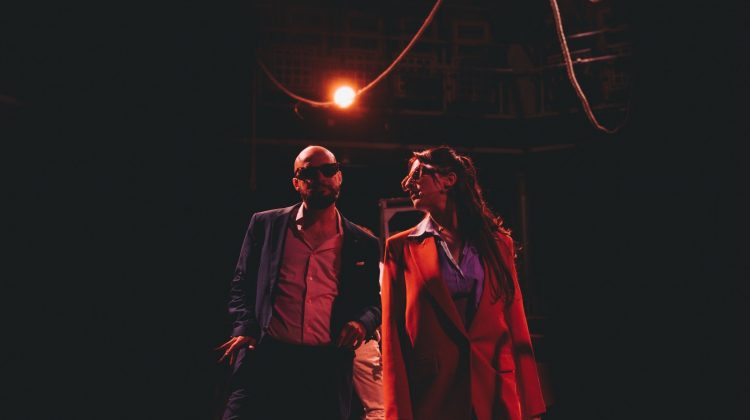
I’ve never been much of a fan of the tale of Pinocchio, really. Always found the whole premise a tad too sad. But I was keen to watch the theatrical adaptation Il-Giddieb Għomru Twil, for various reasons. For starters, the name intrigued me, going against everything that we’ve been taught as children, and thus against the very essence of the traditional fairytale itself.
The second reason was the promotional shoot by Edward Degabriele. Decidedly unPinocchio like, and thus full of promise. Thirdly, the knowledge that this is a Studio 18 production sealed the deal.
The script Il-Giddieb Għomru Twil is written by Anton Saliba – I had missed Zepp, his 2021 writing debut, so I had no expectations in that regard. Which made the gorgeous madness that is this play an even better surprise. Saliba’s script turns the morality tale we’re familiar with right on its head, transforming it into seriously funny satire. Morality theatre isn’t the easiest to pull off and we’ve seen a couple of attempts that fell flat in local theatre these past months. But Saliba’s skill is sharp in this regard.
Director Jean Marc Cafa’s vision for the script more than does it justice. He creates an entire set (together with Shirley Agius Xuereb) out of half a dozen ladders, successfuly convincing the audience that our protagonists are traipsing up hills, climbing lighthouses, driving around the streets in town… when all they’re actually doing is climbing up and down ladders with unlagging energy.
Pinocchio, Maltese kickbacks style
We all know the story of Pinocchio. The basics are present in Il-Giddieb Għomru Twil, but the story has been transposed to the contemporary context. Pinocchio arrives with Grillu (the Grasshopper) to take up a humble job helping out at the lighthouse. Things happen and, before we know it he’s doing community service for something he didn’t do; he gets appointed driver to a local councillor; becomes a councillor himself and… after more than a few twists and turns and falls from grace – he is elected mayor.
The cast is brilliant, there’s no two ways about it. Sean Borg and Becky Camilleri as Il-Volpi and Il-Qattusa (the fox and the cat) are in turns creepy, seductive, menacing, pandering and always just to the right degree. Camilleri has this hilarious way of throwing snarky one-liners as an aside, the audience almost taking on the role of evesdroppers, with the result that they become twice as funny.
Nadine Farrugia is queen of characterisation. Her Sasha s-Serp brought the house down – I honestly can’t unsee all that enthusiastic gum chewing. I also can’t decide which was funniest, whether it was her Serp, or the scenes she shares with Borg, where they represent a certain moneyed section of society. Both actors’ impersonations as so on point that for a couple of seconds I actually thought I was listening to a couple of ex-colleagues talk.
Bejamin Abela as Grillu is Pinocchio’s worthy sidekick that eventually turns into a nemesis. But the standing ovation must go to Jamie Cardona’s Pinocchio. Cardona excells in every aspect of the role, making us laugh with him, laugh at him, pity him and feel contempt in quick succession. When Pinocchio starts losing his humanity and turning to wood, Cardona reveals his real mettle, his mechanical, clunky movements holding the audience transfixed.
The production includes excellent use of puppetry. The way Carmen (an NPC, if you will) is brought to life by Farrugia, Borg and Camilleri is truly impressive. There are some musical numbers under the direction of Aleandro Spiteri Monsigneur. Unpopular opinion incoming, but I felt that – despite being executed extremely well, with Spiteri Monsigneur successfully proving his prowess – the play didn’t really need these musical interludes. I found the use of the Xarabank theme particularly hackneyed, although I suspect no-one else in the audience shared my opinion.
That subjective gripe aside, this play kept me enthralled from start to finish. Talent is not lacking in Malta, and I’m constantly impressed by the terrific range that actors like Borg, Camilleri and Farrugia continuously demonstrate. This year is turning out to be a particularly good one for local productions, with the likes of Il-Bieb Mitbuq and L-Arrest ta’ Danny Weed taking place only a few weeks ago. Il-Giddieb Għomru Twil is yet another superb piece of Maltese theatre, an effective exercise in satire that works on all levels.
